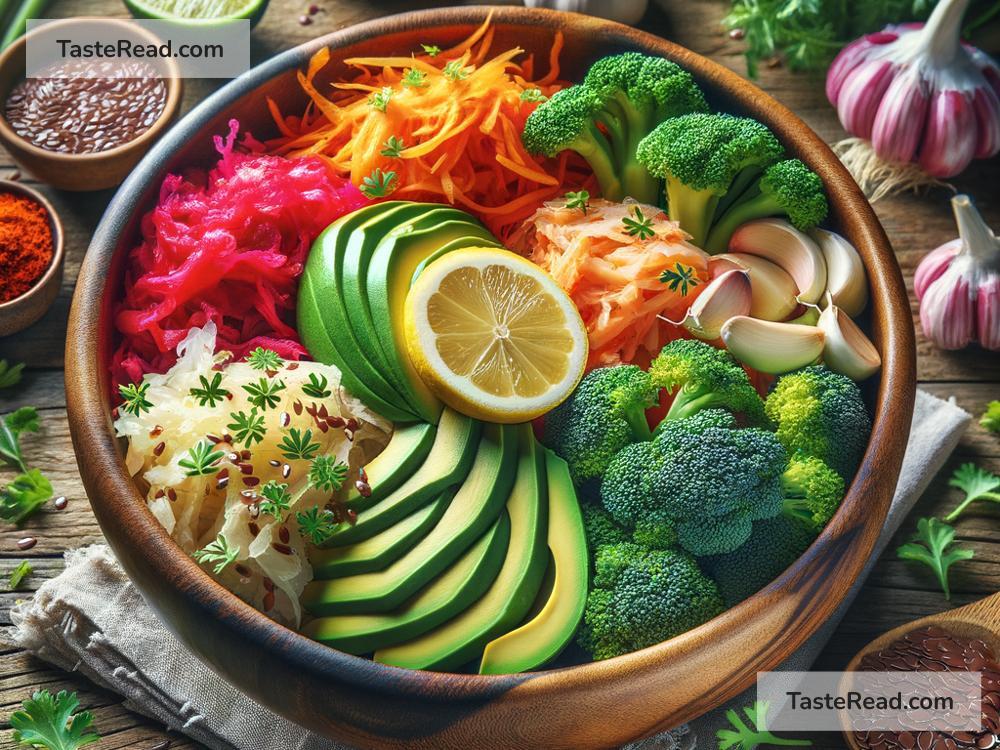Foods to Help Restore Balance and Reduce Dysbiosis
In recent years, more people have begun to understand the importance of gut health. Your gut, home to trillions of bacteria and other microorganisms, plays a crucial role in digestion, immunity, and even mental health. But when the balance of your gut bacteria is disrupted—a condition known as dysbiosis—it can lead to problems like bloating, fatigue, indigestion, and even skin issues or mental fog.
The good news is that what you eat plays a big role in promoting gut health and reducing dysbiosis. Let’s explore some foods that can help bring your gut microbiota back into balance and support your overall well-being.
1. Fermented Foods
Fermented foods are an excellent source of probiotics, which are beneficial bacteria that help restore gut health. These foods introduce live microorganisms into your system, encouraging the growth of good bacteria and suppressing harmful ones.
- Yogurt: Look for the ones labeled “live and active cultures.” Unsweetened yogurt without added sugars is best for gut health.
- Kefir: A fermented milk drink similar to yogurt, kefir is loaded with probiotics and is great for supporting digestion and gut flora.
- Kimchi: This spicy fermented cabbage, common in Korean cuisine, contains strains of good bacteria that improve gut health.
- Sauerkraut: Made from fermented cabbage, sauerkraut is rich in probiotics and fiber, which help feed good bacteria.
- Miso: A Japanese fermented soybean paste, miso can be used in soups and sauces to add probiotics to your diet.
2. Foods Rich in Prebiotics
Prebiotics are types of fiber that feed the good bacteria already living in your gut. Unlike probiotics, prebiotics aren’t live bacteria; they are nutrients that help beneficial microbes thrive.
- Bananas: Rich in fiber, bananas contain inulin and resistant starch that act as prebiotics to nourish good bacteria.
- Onions and Garlic: These flavorful additions to meals contain compounds like fructooligosaccharides that feed beneficial bacteria.
- Asparagus: A nutrient-dense vegetable, asparagus is loaded with prebiotic fiber.
- Apples: Besides being tasty, apples contain pectin, a natural fiber that promotes a healthy gut microbiome.
- Whole Grains: Oats, barley, and whole wheat are excellent sources of fiber that support gut bacteria.
3. Polyphenol-Rich Foods
Polyphenols are powerful plant compounds found in certain foods. They act as antioxidants and are also known to increase the populations of beneficial bacteria in the gut.
- Berries: Blueberries, raspberries, and strawberries are full of polyphenols that support gut health.
- Green Tea: Packed with polyphenols, green tea promotes the growth of good bacteria and reduces inflammation.
- Dark Chocolate: High-quality dark chocolate with at least 70% cocoa can be a treat for both your taste buds and your gut bacteria.
- Olive Oil: Extra virgin olive oil is rich in polyphenols and helps create a gut environment favorable for good bacteria.
4. Fiber-Rich Foods
Dietary fiber is critical for gut health because it acts as food for your microbiota. A fiber-rich diet helps maintain regular bowel movements, reduces inflammation, and encourages diversity in your gut bacteria.
- Legumes: Beans, lentils, peas, and chickpeas are affordable ways to introduce more fiber into your diet.
- Flaxseeds and Chia Seeds: These tiny seeds are nutrient powerhouses, offering plenty of fiber and omega-3 fats that reduce inflammation and support gut health.
- Leafy Greens: Spinach, kale, and other leafy vegetables are fiber-rich and help good bacteria thrive.
- Root Vegetables: Foods like sweet potatoes, carrots, and beets offer fiber and essential nutrients.
5. Bone Broth
While bone broth may not directly alter your gut bacteria like probiotics, it is gentle on the stomach and contains compounds like collagen and gelatin that help support a strong gut lining. A healthy gut lining prevents harmful bacteria from spreading while giving good bacteria a safe environment to thrive.
6. Omega-3 Fatty Acids
Omega-3 fatty acids are known for their anti-inflammatory properties and their ability to promote a healthy gut microbiome.
- Fatty Fish: Salmon, mackerel, and sardines are rich in omega-3s.
- Walnuts: These nuts can act as a plant-based source of omega-3s while also providing fiber and micronutrients.
- Flaxseeds: Ground flaxseeds are a simple addition to smoothies or oatmeal to boost your omega-3 intake.
Foods to Avoid
It’s equally important to steer clear of foods that can worsen dysbiosis. Processed and sugary foods, artificial sweeteners, and excessive alcohol can disrupt the balance of bacteria in your gut. Limit these items and prioritize whole, nutrient-dense foods to support a healthy microbiome.
Building a Gut-Friendly Plate
To reduce dysbiosis, aim for a balanced plate that includes a mix of probiotic-rich fermented foods, prebiotic fibers, polyphenol-rich plants, and healthy fats. Stay hydrated, exercise regularly, and consider reducing stress to further support your gut health.
Improving your gut microbiome doesn’t happen overnight, but with consistent changes to your diet, you’ll begin to notice improvements in your digestion, energy levels, and overall wellness. By focusing on the right foods, you’re taking a fantastic step toward a healthier, happier gut!


